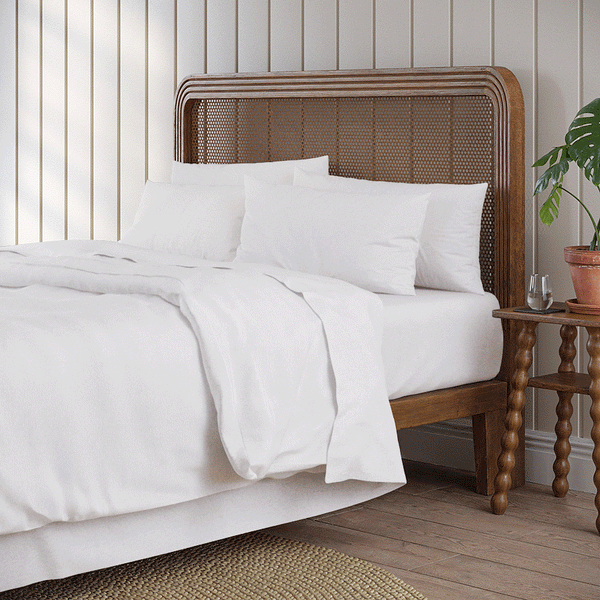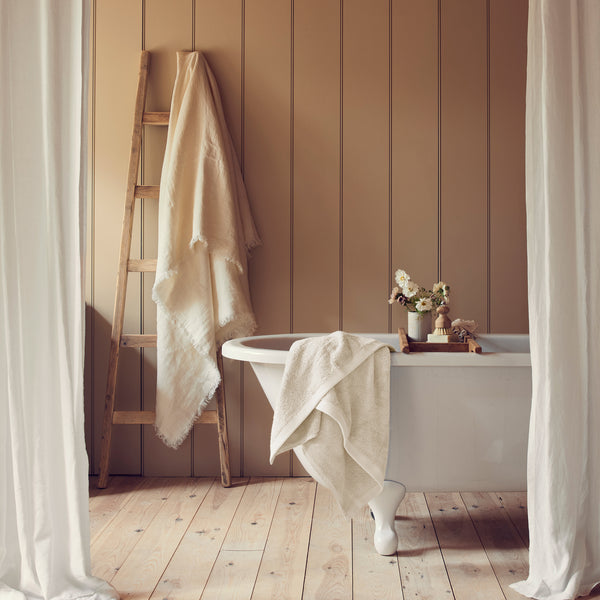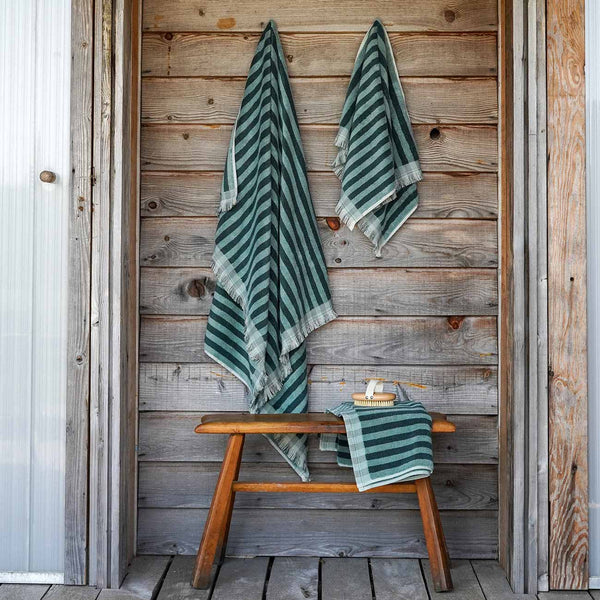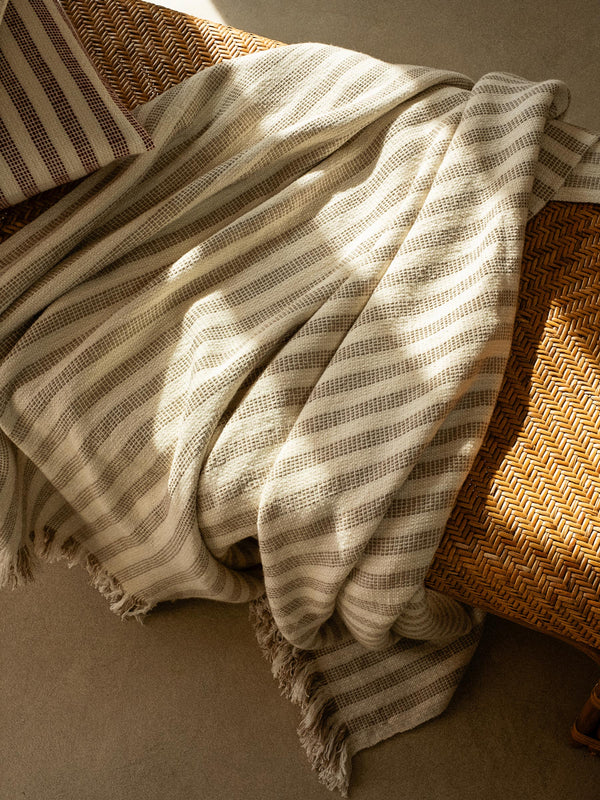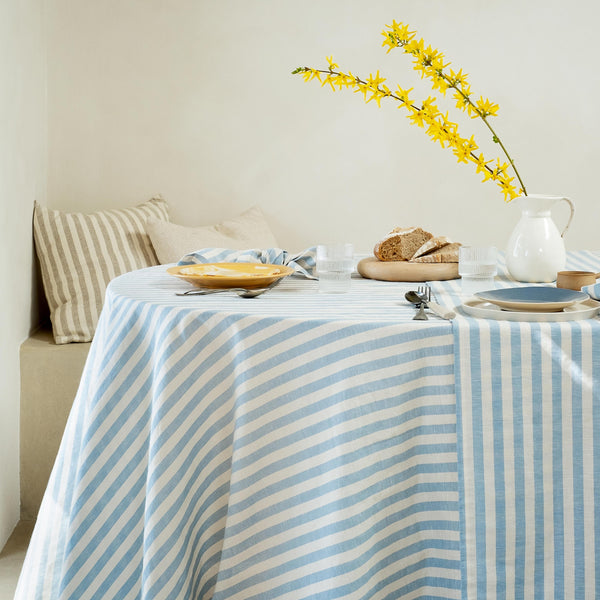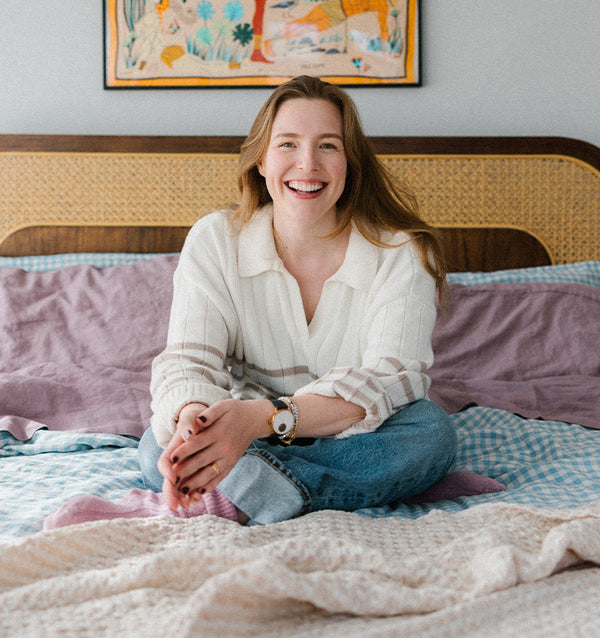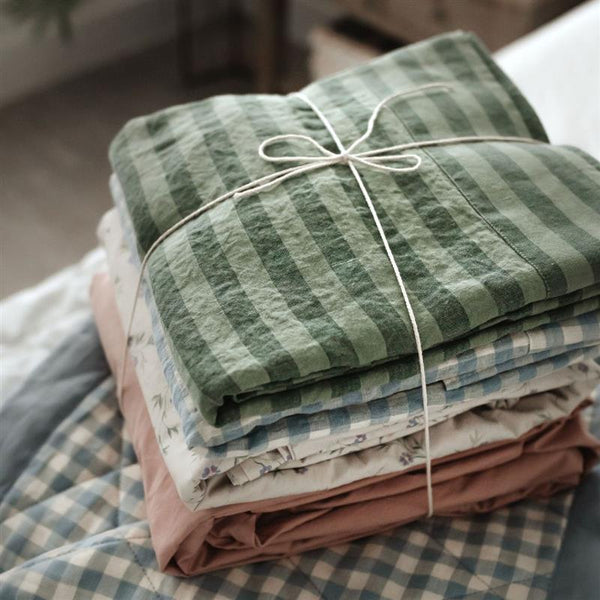Work Hard, Sleep Harder: The best US States to live in for a Healthy Sleep and Work-Life Balance
We take sleep very seriously here at Piglet in Bed, and always aim to achieve a good balance between sleep and work. Getting the right amount of sleep is essential to the human body - we can all agree that trying to focus on anything after just a couple of hours of sleep at night isn’t ideal. As adults, most of us need at least seven to nine hours of sleep every night, so our minds and bodies can function properly.
When it comes to getting a night of restful sleep, there’s only so much a comfy bed and quality bed linen can do. Environmental factors like work schedules, stress, a noisy or bright room and some medical conditions can all prevent us from achieving a healthy amount of sleep. But, can a good sleep schedule also depend on which state you live in? Well, we crunched the numbers and sorted through a ton of data to find the best (and worst) states to live in for a healthy work and sleep balance.
Dr Neil Stanley, an independent sleep expert and bestselling author (of ‘How to Sleep Well’) also spoke exclusively to Piglet in Bed to provide some expert tips for getting a better night’s sleep.
How we did it
To find out which states were the best and worse to live in, we gave each one a score (the lower the score, the better) based on several factors, which included:
Minutes Asleep
The average minutes spent asleep varies across the state (and from person to person) but, we found that the average time is 7 hours and 39 minutes. An adult should spend between 7-9 hours of sleep every night, this means that the overall number is on the lower side of the healthy spectrum.
Hours Worked
Based on the US Bureau of Labor Statistics findings (2020), we found that Americans work for an average of 40 hours and 22 minutes a week, suggesting that many are sticking to a healthy work schedule.
Average Pay
The average American earns around $22 per hour they work. So, if a person takes two weeks unpaid vacation and works 40 hours a week, this would mean the average salary is around $44,000 a year.
Job Satisfaction
Job satisfaction is an important factor to take into consideration when it comes to a healthy sleep schedule, so we looked at Glassdoor reviews to find the percentage of companies rated 4.5*+ in each US state as of December 2021.
Stress
Using data collected from the WalletHub survey 2021, we found which states were the most and least stressed. This was based across all the different types of stress we experience and to what degree, including family, health, work and money-related stress. Dr Baron, from the University of Utah, said that “stress can affect your sleep by either trouble getting to sleep, because you're thinking or maybe doing things to prepare, working later or trying to get things done. It can cause awakenings during the night as well as people to feel like their sleep is less restful.”
Loudness
Using Best Life’s (2020) study in combination with traffic data from the TRIP Interstate Report Appendix (2021) we found out which were the noisiest states to live in as nocturnal noise has been shown to disturb sleep.
Light
As it gets darker in the evening, your brain releases melatonin which helps you to feel sleepy just in time for bed. But, when your eyes are exposed to even low levels of artificial light, like street lights, commercial lights or vehicle lights outside, then your brain suppresses the release of melatonin making it harder for you to fall asleep. So, too much light exposure or light pollution can affect your sleep. Some US states have light pollution laws in place which help to reduce the amount of outdoor artificial light residents are exposed to, we considered the impact of these laws for this data.
Insomnia Concern
Lastly, we used Google search data to find the states where ‘insomnia’ related search terms are most prevalent. This gives us some view into where the issue is most common in the US.
The Best US States to Live in for an Overall Work, Life and Sleep Balance


After gathering all of the information, we learned that the best state to live in for a healthy work, life and sleep balance is Colorado. With a beautifully low score of 79, Colorado is full of naturally stunning rolling hills and mountains as well as some impressive city skylines. Although the weather in this state can be very unpredictable, the quality of life here definitely outweighs any cons! If you’re thinking of moving to this state, according to Zillow, the average house price is $528,21.
In second place, we have Alaska. Wonderfully laid-back, Alaska is known for its glaciers, vast wilderness, northern lights and slower way of life. With extreme weather conditions, with the brightest and sunniest of summers, averaging around 19 hours of sun a day, and the coldest, darkest of winters, with up to 19 hours of darkness a day in the winter, it scored an 87 on our scale. You’ll find that the average home in Alaska costs $308,436.
The third best state to live in for a healthy, work, life and sleep balance is Wyoming which also scored an 87. Wyoming is actually the least populated state in the United States with less than 1 person per square mile and is another state which experiences very extreme temperature and light differences in summer and winter. According to Zillow, this is the most affordable state of the top 3 to live in, with the average house costing $292,509.
The Best States to Sleep In


When it comes to purely sleep, we calculated which are the best states to sleep in by looking at our data on minutes spent asleep, state loudness, insomnia search data and overall stress. Here, we found that the best state for a good night's sleep is Utah.
Renowned for its 5 stunning national parks and ultimate stargazing spots (you can even see the Milky Way in some areas!), Utah is definitely a beautiful place to live. With the clear, dark night skies and quiet spots surrounding the cities and towns, Utah is the perfect place to get some shut-eye.
The Best States to Work In


Based on the average job hours, salary, job satisfaction and work/money-related stress, we learned that the best state to work in is, once again, Alaska. According to ZipRecruiter, the average salary in Alaska is a generous $69,750, which is more than the average of the rest of the US. Plus, residents typically work less than the average weekly house and report less work-related stress - making it a dream place to live.
Tips for better sleep from an expert
Dr Neil Stanley, an independent sleep expert and bestselling author (of ‘How to Sleep Well’) has more than 40 years of sleep research experience and a PHD based on his published works on various aspects of sleep research and psychopharmacology. He has shared his tips below on nailing the sleep and work-life balance.
- Your bedroom needs to be dark
Darkness is essential for sleep; even small amounts of light can be disruptive to sleep and the lighter your bedroom, the worse the problem. Make sure you cover up internal light sources and manage external sources by either installing blackout blinds or heavy lined curtains. If that is not possible, then consider using an eye mask
- Have a fixed wake-up time every day of the week
The most important aspect of waking refreshed is having a set wake-up time seven days a week. Your body and brain start preparing to wake up approx 90 minutes before you actually do, so if you have a fixed wake up time, the body and brain know when they are going to wake and can thus prepare accordingly.
- You have to have a 'quiet mind' to achieve good sleep.
The number one prerequisite for getting to sleep is a quiet mind. You cannot fall asleep if your mind is whirring with the care of the day. The first thing to do is to put the day to bed a couple of hours before you go to bed, so after this time, don't open the gas bill, check your work’s email or have a heated political discussion with your partner. From about 45 minutes before bed no screen, laptops, tablets e-reader, smartphones etc. and then do something that quiets the mind, for some people, this can be reading a book or listening to music, for others it can be a warm bath or a mug of a hot milky drink. There is no magic way to sleep; you need to find what works for you. And lastly, don't try and fall asleep; the harder you try, the less likely you are to fall asleep.
- For good sleep, the bed can be warm, but the bedroom needs to be cool
Many experts say that the ideal temperature for the bedroom is 16-18oC (60-65oF), although this is again a matter of personal preference. However, it is not just the room temperature that is important for getting a good night's sleep. The temperature in your immediate sleeping environment, i.e. under the duvet, is equally important and should be close to a thermo-neutral temperature (i.e. approx. 29oC); however, you are just one big fleshy hot water bottle, so you will heat the space to this temperature just by being in bed. During the night, the body needs to lose heat and this is done mainly through the head and face, the only bits that usually stick out from under the duvet, and thus a cool bedroom facilitates this heat loss. However, if the room is too hot or you are too hot under the duvet, it is more difficult for the body to lose heat and this will cause disturbed sleep. The same is also true if you are too cold, as this means the body has to work hard to maintain its optimal temperature and again, this can disturb sleep.
- Recognise if you are a 'lark' or an 'owl'.
It is not only the quality and quantity of sleep that is important to wake up feeling refreshed; it is also the timing, but some people are also naturally morning people and some are evening people. This is, to a large extent, genetically determined. Suppose you are an evening person and you wake up before your natural propensity to wake. In that case, you may experience 'sleep inertia', that feeling of grogginess, for between 15 minutes and 2 hours after waking.
- Get the right amount of sleep for you
Sleep need is individual, like height or shoe-size; anywhere between 4 and 11 hours can be considered normal, although what is important is that you get the right amount of sleep for you. Your sleep need is genetically determined, so; if you are a 9 hour a night person, you need to endeavour to get 9 hours. Also, if you are naturally a 4 hour a night person, you will essentially be wasting your time if you are trying to get what you have been lead to believe is the ideal 8 hours a night; however, it needs to be remembered that there is a big difference between getting 4 hours sleep a night and actually needing only 4 hours. Therefore what is important is that you get the right amount of sleep. Simply, if you feel awake and function at a high level during the day, you are probably getting enough sleep, but if you feel sleepy the next day, you are not getting enough sleep.
- Drinking too much of any beverage can lead to disturbed sleep.
They are liable to cause more awakenings because of the need to go to the toilet during the night. As we get older, the more prevalent are these night-time awakenings, so restrict the amount of fluids taken for about an hour or so before bedtime and make sure that you empty your bladder one last time before switching the light out – but if the symptoms persist or you start getting up more than once a night to urinate it would be wise to talk to you doctor.
- Avoid too much alcohol before bed.
Alcohol works on the same receptors as sleeping tablets, so it will help put you to sleep; the problems come later in the night; the headache caused by dehydration, the need to visit the bathroom and the disturbed and restless sleep because of feeling hot as you are burning off all the calories. However, a small sherry before bed has never done anyone any harm.
- When you eat can affect your sleep.
A heavy meal close to bedtime may make you less comfortable when you settle down for your night's rest. A big meal will mean that your body has to burn the calories, and thus your body temperature will go up. However, to get good sleep, your body temperature actually needs to drop during the night. At the same time, going to bed hungry can be just as disruptive to sleep as going to bed too full.
- Sunlight is the most powerful regulator of our biological clock.
This is why we have evolved to sleep during the night and be awake during the day. If you try to sleep during the day, your sleep will be shorter and more disturbed than during the night. So your bedroom should be dark when you want to sleep. Equally, you should ensure exposure to sunlight during the day.
- If your sleep is disrupted by noise, consider using earplugs.
Some people also find that the drone of an electric fan or relaxing music can be helpful in masking other more disruptive sounds. If you are going to use a noise app or a sound machine, 'pink noise' is better than white noise. Older people, because their sleep is generally lighter, may be particularly bothered by noise.
- Avoid blue light from smartphones, computers etc., for 45 minutes before bed.
Blue light has been shown to suppress melatonin production. Melatonin is a key signal to the body that it is time to fall asleep, so it is important to avoid exposure to blue light before lights out. NB' Paper white' devices have also been shown to disturb sleep
- Make time for sleep.
Your sleep is vitally important to your physical, mental and emotional health; therefore, you need to make time in your life to get the sleep you need. Prioritise sleep; it should not be the thing you do after everything else.
- The bedroom should be your sleep room.
Your bedroom should be devoted to sleep. If you are not asleep, you should not be in your bedroom, and you should only sleep in your bedroom. It is not your office, gym, games, room or cinema.
- Your bed partner can play a large role in your sleep disturbance, so consider separate beds/bedrooms
In 2005 I co-authored a paper that showed that much of your sleep disturbance is caused by your bed partner and so if they are disturbing your sleep because of snoring or fidgeting, you may want to consider separate beds or even separate bedrooms. If it works for you both, not sleeping together is a mature pragmatic solution to a problem and has no bearing on the strength, or otherwise, of your relationship. Lack of 'intimacy' would be much more suggestive of a problem.
- Don't try and fall asleep; the harder you try, the less likely you are to sleep.
If you are tossing and turning for more than 30 minutes at the start of the night or 20 minutes during the night, it may be helpful to get out of bed and do something else, only going back to bed when you feel sleepy again. If you wake early in the morning, it may be easier to get up and do something rather than trying to go back to sleep again.
- Buy an alarm clock rather than using your mobile phone to wake you up.
Most people these days use their mobile phones as their alarm clock and co course this put the phone in the bedroom right next to the bed; thus it is a temptation to check the phone during the night or to use it before bed use the phone.
- Buy a big, comfortable bed.
Sleeping in a standard double bed means two adults have less space each than a child's bed. Couple this with the fact that your bed partner will fight you for the duvet, make annoying noises, toss and turn all night and you wonder why you are not sleeping well. So, one of the easiest ways of getting a better night's sleep is to get a bigger bed, essentially get as big a bed you can get into your bedroom. Really the minimum size bed that two adults should sleep in, to give them the same space as their child, would be a 6ft bed. Sleep is one of the most selfish things you can do; you cannot share your sleep with anyone.
- Always have a pen and paper beside your bed
If you are worried about something, then write your worries down. They will still be there in the morning, so you don't have to worry about them during the night. If your mind is racing with everything you have to do tomorrow, make a list of things to be tackled the next day.
- The best way to sleep at night is to be awake during the day
Being physically and/or mentally active during the day is one of the best ways of ensuring good sleep at night
- Ensure adequate exposure to sunlight during the day.
Sunlight exposure helps maintain a healthy sleep-wake cycle
- Avoid napping during the day.
If you nap throughout the day, it is probably not surprising that you will not be able to sleep at night. If you are going to nap, a 20-minute nap mid-afternoon will help boost your mental performance.
- Go to bed when you are sleepy.
If you are sleepy, then go to sleep. If you are not sleepy at bedtime, then do something else; read a book, listen to soft music etc. Find something relaxing but not stimulating to take your mind off of worries about sleep.
- Quality of sleep is just as important as the quantity of sleep.
Your sleep must, as far as possible, be uninterrupted. So try to minimise those things that may disturb you.
- Caffeinated drinks may affect your sleep, so if these appear to be the problem, then modify your consumption to help your sleep.
Caffeine is a stimulant, and different people have different sensitivities to its effects. For some people, even a small amount of caffeine early in the day is enough to cause problems falling asleep 10 to 12 hours later. Equally, there are people who have drunk two strong coffees every evening and have no problem sleeping. So if you have problems falling asleep or your sleep isn't restful, it may be useful to avoid caffeinated drinks and see if your sleep improves.
- Exercise in the morning or early afternoon can be helpful for getting good sleep.
However, do not exercise too close to bedtime and always ensure a proper wind-down after exercise in the evening.
- Getting good sleep should not be a chore.
Good sleepers don't do anything to get to sleep; they simply do it. Don't over-complicate getting to sleep; remember, you cannot find sleep; you have to let sleep find you.
- Establish a regular bedtime schedule.
Having a wind-down routine or relaxing before bed can help; there are no hard and fast rules that will work for you. Your bedtime routine should be easy to do and be a pleasure, not a chore; whatever works for you is correct. It does not matter if you have a few different routines that you use; the most important thing is that they are something that you want to do each night.
- Even counting sheep can keep you awake.
Recent research has shown that even something as simple as counting sheep can actually keep you from sleeping; counting engages the brain. Imagining a static, tranquil scene is more effective.
- Sleep is good; want to go to sleep.
Good sleep should be a pleasure, so you should want to go to sleep, not resent the fact that you have to go to sleep.
Creating a comfy space to sleep is a great place to start if you want to improve your sleep quality.
From snuggly bed linen to cosy lounge and nightwear, we have just what you need for the most comfortable night’s sleep.
SOURCES
- Sleep ratings - Sleep IQ
- Working hours and salary - US Bureau of Labor Statistics (2020)
- Stress scores - WalletHub
- Insomnia search data - Google Ads (Oct 2020-2021)
- Traffic data - TRIP Interstate Report Appendix - June 2021
- Light pollution laws - National Conference of State Legislatures
- Noise pollution - Best Life
- Job ratings - Glassdoor
- Expert sleep tips - Dr Neil Stanley, The Sleep Consultancy
